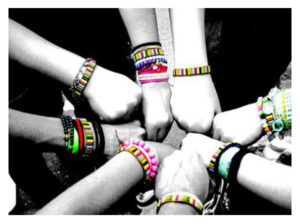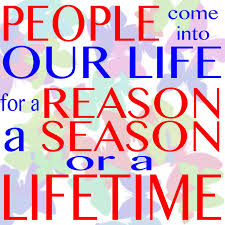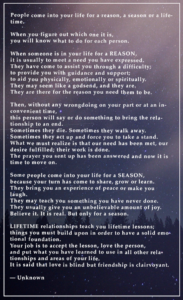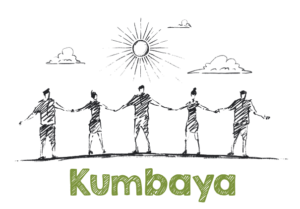Difficult Situations
I served as the GCC Professional Staff (PS) President for a couple of years and sat in many meetings with PS employees and HR to discuss difficult situations. I always maintained a professional demeanor, which helped me in these often uncomfortable and emotional situations. I put myself in the employee’s shoes to do what was best for them. I supported them and ensured their rights were met. I spoke up to managers a couple of times which wasn’t easy, but I did it for my colleagues which made it easier.
I believe putting the best interests of the people who need help really gives me the backbone and courage I need to endure difficult conversations and situations.
For me, 1983 was the best and worst year of my life. The very best things and the absolute worst things in my life happened that year. It was then that I learned the mantra “this too shall pass.” I realized that I could get through anything that year. I learned that for better or worse, time  passes and everything flows down the river, the good, the bad, and the ugly. It all becomes history. I think back on times when I would obsess over something, usually a negative thing and the hours and energy I would waste in worry. A few weeks later I recalled being very upset and agitated about something, but couldn’t remember what caused all of the angst. This too shall pass.
passes and everything flows down the river, the good, the bad, and the ugly. It all becomes history. I think back on times when I would obsess over something, usually a negative thing and the hours and energy I would waste in worry. A few weeks later I recalled being very upset and agitated about something, but couldn’t remember what caused all of the angst. This too shall pass.
Sometimes just knowing this is enough to get me through.








 That’s a pretty relevant question. It is Thursday, and the To-Do list is fairly long. So why not shirk all responsibility for 30 minutes or so and blog about happy hour? Sounds good to me. Happy hour is the obvious choice for this week’s writing prompt for
That’s a pretty relevant question. It is Thursday, and the To-Do list is fairly long. So why not shirk all responsibility for 30 minutes or so and blog about happy hour? Sounds good to me. Happy hour is the obvious choice for this week’s writing prompt for  But there are also many happy hours. Meeting up off campus allows for people to feel free, be more relaxed, and open up a bit more about how things on the job are really going. It gives us all a chance to problem solve together and brainstorm ideas. But it also builds stronger relationships. I work with a bunch of awesome people who travel to conferences for professional development together, submit proposals for grants together, work on projects together, and of course, attend many happy hours, dinners and gatherings in our own homes together. We’re just one big kumbaya song.
But there are also many happy hours. Meeting up off campus allows for people to feel free, be more relaxed, and open up a bit more about how things on the job are really going. It gives us all a chance to problem solve together and brainstorm ideas. But it also builds stronger relationships. I work with a bunch of awesome people who travel to conferences for professional development together, submit proposals for grants together, work on projects together, and of course, attend many happy hours, dinners and gatherings in our own homes together. We’re just one big kumbaya song.